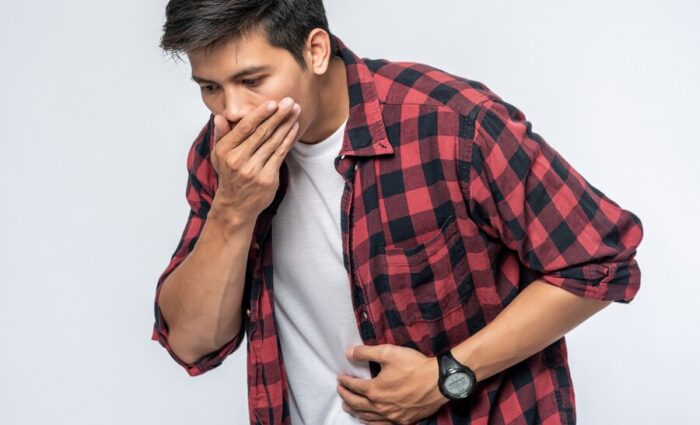Gastroesophageal reflux disease (GERD) is a chronic condition that occurs when stomach acid or bile irritates the food pipe lining. It is more than the occasional heartburn or indigestion that we all experience after a heavy meal. GERD can affect anyone and, if left untreated, can lead to more serious health complications. If you are struggling with GERD, seeking the Best GERD treatment in Indirapuram is essential to prevent further discomfort and potential health issues.
For more information about GERD treatment direct chat with us on WhatsApp.
What is GERD?
GERD is a long-term (chronic) digestive disorder that affects the lower esophageal sphincter (LES). The LES is a ring of muscle at the end of the esophagus that acts as a valve between the stomach and the esophagus. When functioning properly, the LES opens to allow food into the stomach and then closes to prevent stomach acid from backing up into the esophagus.
However, when the LES weakens or relaxes abnormally, stomach acid can flow backward into the esophagus, causing irritation and discomfort. This backward flow of acid is known as acid reflux, which may lead to symptoms such as heartburn, regurgitation, and difficulty swallowing.
Symptoms of GERD
Common symptoms of GERD include:
- Heartburn: A burning feeling in the chest that usually occurs at night or after eating.
- Acid regurgitation: A sour or bitter taste in the mouth caused by stomach acid reaching the throat.
- Chest pain: This can sometimes mimic a heart attack.
- Difficulty swallowing: Known as dysphagia, where food feels stuck or there is pain while swallowing.
- Nausea: Occasional nausea can also be a symptom of GERD.
What Causes GERD?
There are several causes of GERD, and in many cases, it’s a combination of factors that contribute to the condition.
- Weakening of the LES: As mentioned earlier, the most common cause of GERD is the weakening of the LES. Acid from the stomach may seep into the esophagus if the LES does not shut correctly.
- Hiatal Hernia: This occurs when part of the stomach pushes up through the diaphragm into the chest cavity, making it easier for acid to backflow into the esophagus. Hiatal hernias can worsen GERD symptoms and make them more difficult to manage.
- Obesity: Excess weight, especially around the abdomen, can put pressure on the stomach, causing acid to rise into the esophagus. One of the main risk factors for GERD is obesity.
- Pregnancy: Hormonal changes during pregnancy can relax the LES, allowing stomach acid to reflux. Additionally, the growing uterus can put pressure on the stomach, exacerbating GERD symptoms.
- Diet and Lifestyle: Certain foods and beverages can trigger GERD symptoms, including:
- Spicy or fatty foods
- Citrus fruits and juices
- Tomato-based products
- Chocolate
- Caffeine and alcohol
- Carbonated drinks
- Garlic and onions
Smoking and overeating can also contribute to the weakening of the LES, as well as trigger acid reflux.
6. Medications: Some medications, such as aspirin, ibuprofen, and certain blood pressure medications, can irritate the esophagus or relax the LES, leading to acid reflux.
7. Delayed Stomach Emptying: If the stomach takes longer to empty its contents, it increases the pressure in the stomach, which may lead to acid reflux and GERD.
8. Stress: While stress does not directly cause GERD, it can worsen symptoms. Stress can lead to poor eating habits, smoking, or increased alcohol consumption, which can trigger GERD flare-ups.
How is GERD Diagnosed?
If you experience frequent heartburn or other GERD symptoms, it’s essential to see a doctor. They will evaluate your symptoms and medical history, and may recommend the following diagnostic tests:
- Endoscopy: A small camera is inserted through the throat to examine the esophagus and stomach.
- pH Monitoring: This test measures the acidity levels in the esophagus to check for acid reflux.
- Esophageal Manometry: This test checks the function of the LES and the motility of the esophagus.
Best GERD Treatment in Indirapuram
Treatment for GERD typically starts with lifestyle modifications, including dietary changes, weight loss, and reducing alcohol or caffeine intake. Doctors may also recommend over-the-counter antacids or prescription medications to reduce stomach acid and improve LES function. Surgery can be necessary in more severe cases in order to address the underlying problem.
If you’re seeking the Best GERD treatment in Indirapuram, it’s essential to consult a healthcare professional specializing in gastroenterology. The right treatment plan can help alleviate your symptoms and improve your quality of life.
Lifestyle Changes to Manage GERD
Here are a few lifestyle changes that can help manage GERD:
- Eat smaller meals: Instead of three large meals a day, try eating smaller, more frequent meals to avoid overloading the stomach.
- Avoid eating late: Try not to eat at least 2-3 hours before bedtime to reduce nighttime reflux.
- Elevate the head of your bed: Lifting the head of your bed by a few inches can help prevent acid from flowing back into the esophagus during sleep.
- Wear loose clothing: Tight clothing, especially around the abdomen, can increase pressure on the stomach and lead to acid reflux.
- Give up smoking: Smoking weakens the LES and causes the stomach to produce more acid.
Medical Treatments for GERD
There are several treatments available for GERD:
- Antacids: These can provide quick relief by neutralizing stomach acid.
- H2 Blockers: These reduce the amount of acid the stomach produces, helping to prevent reflux.
- Proton Pump Inhibitors (PPIs): These are stronger medications that block acid production and help heal the esophagus.
- Prokinetics: These medications help improve the motility of the esophagus and stomach, reducing reflux.
In some cases, when medications do not provide relief, surgery may be considered. A procedure called fundoplication can strengthen the LES and prevent reflux. Another less invasive option is endoscopic therapy, which can tighten the LES.
Conclusion
GERD is a common yet often misunderstood condition. It can cause significant discomfort and, if left untreated, lead to more serious health problems. Understanding its causes and symptoms is the first step in managing the condition. If you’re struggling with GERD, seek the Best GERD treatment in Indirapuram from a specialized healthcare provider. They can create a tailored treatment plan to help you find relief and improve your overall health.
For more information about us so, please visit our website drtanuraghava.com, and direct chat with us on WhatsApp.





